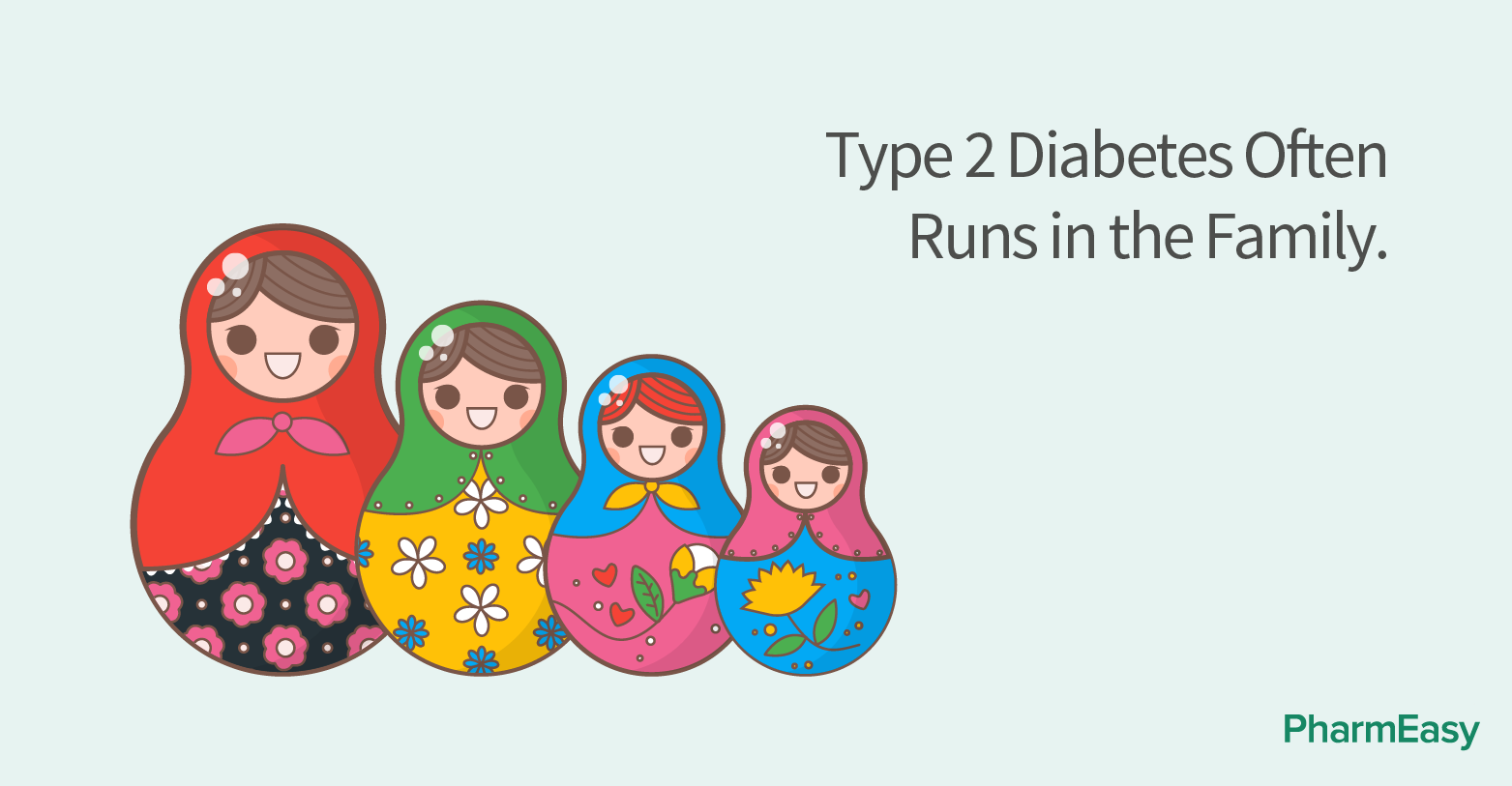Type 1 and Type 2 Diabetes: Symptoms, Causes, Diet and Treatment
By Dhwani Jerajani +2 more

Download PharmEasy App




Register to Avail the Offer
Send OTPBy continuing, you agree with our Privacy Policy and Terms and Conditions
By Dhwani Jerajani +2 more
Diabetes is now a lifestyle disease. There are three main types of diabetes namely type 1, type 2 and gestational diabetes. Today diabetes is age agnostic, i.e. people can develop diabetes at any age. Both women and men can fall victim to Type 1 & Type 2 Diabetes.
In Type 1 diabetes, the body no longer makes insulin or enough insulin because the immune system has attacked. The immune system which usually protects us from infections by getting rid of bacteria, viruses and other harmful substances, destroys the cells that make insulin.

Type 2 diabetes usually begins with insulin resistance-a condition that occurs when fat, liver and muscle cells do not use insulin to carry glucose into the body cells to use for energy. As a result, the body needs more insulin to help glucose enter the cells.
Symptoms of Type 1 & Type 2 Diabetes are:
Cause
Between Type 1 & Type 2 Diabetes, In type 1 diabetes, the body can no longer make insulin because the body’s immune system has attacked and damaged the cells where insulin is produced. The cause of type 2 diabetes is mostly unknown, but genetics and lifestyle play roles in this. Type 2 diabetes has been linked to obesity, genetic risk factors and inactivity. A few racial and ethnic groups are at a higher risk for type 2 diabetes.
Diet
Per day calorie intake of a person with diabetes should be between 1,500-1,800 calories with a proportion of 60:20:20 between carbohydrates, fats and proteins, respectively. A diabetes diet should have at least two seasonal fruits and three vegetables in the meal plan. Though dry fruits may seem like a healthy snack, it is not a good option for people with diabetes, as fructose can spike the sugar level. Whole grains, oats, channa atta, millets and other high fibre foods should be incorporated into the diet. If you feel like eating pasta or noodles, make sure to accompany it with vegetable/sprouts. Good fats such as Omega-3 and monounsaturated fats (MUFA) should be consumed as they are good for the body. Natural sources for these are canola oil, flaxseed oil, fatty fish and nuts. These are also low in cholesterol and are trans fat-free.
Treatment
Studies have shown that lifestyle changes, such as losing weight, eating healthy and increasing physical activity can radically reduce the progression of type 2 diabetes and are essential to control type 1 diabetes. These lifestyle changes can help minimise other risk factors like blood cholesterol and high blood pressure, which can have a tremendous impact on people with diabetes.
Prevention is always better than cure. In many instances in Type 1 & Type 2 Diabetes, lifestyle changes must complement a regimen of medications to control high blood pressure, blood glucose levels and cholesterol as well as to prevent a heart attack and stroke.
Disclaimer: The information provided here is for educational/awareness purposes only and is not intended to be a substitute for medical treatment by a healthcare professional and should not be relied upon to diagnose or treat any medical condition. The reader should consult a registered medical practitioner to determine the appropriateness of the information and before consuming any medication. PharmEasy does not provide any guarantee or warranty (express or implied) regarding the accuracy, adequacy, completeness, legality, reliability or usefulness of the information; and disclaims any liability arising thereof.
Links and product recommendations in the information provided here are advertisements of third-party products available on the website. PharmEasy does not make any representation on the accuracy or suitability of such products/services. Advertisements do not influence the editorial decisions or content. The information in this blog is subject to change without notice. The authors and administrators reserve the right to modify, add, or remove content without notification. It is your responsibility to review this disclaimer regularly for any changes.
Comments